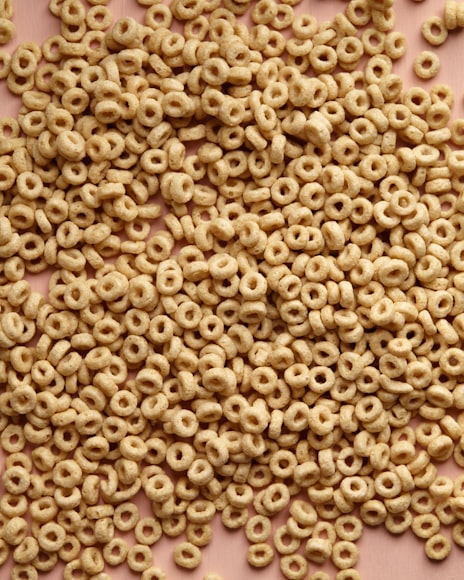Natural Food Options for Dogs

As a dog owner, providing your furry friend with a healthy and balanced diet is paramount. While commercial pet food is convenient, it may not always contain the best ingredients for your dog’s well-being. Natural food options offer a more wholesome alternative, providing numerous benefits for your canine companion.
Benefits of Natural Food for Dogs
- Improved digestion: Natural foods are typically easier for dogs to digest, reducing the risk of gastrointestinal issues such as diarrhea, constipation, and gas.
- Enhanced skin and coat health: Natural ingredients like fruits, vegetables, and fish are rich in vitamins, minerals, and antioxidants that contribute to a healthy skin and coat.
- Reduced risk of allergies and sensitivities: Many dogs are allergic to ingredients commonly found in commercial pet food, such as grains or meat by-products. Natural foods often contain limited ingredients, reducing the chances of triggering allergies.
- Weight management: Natural foods are often less calorie-dense than commercial pet food, making them a good choice for dogs prone to weight gain.
- Improved overall health: A diet rich in natural ingredients provides dogs with essential nutrients that support their overall health and well-being.
Natural Food Options for Dogs
1. Lean Protein Sources:
- Chicken (boneless, skinless)
- Beef (grass-fed or organic)
- Fish (such as salmon, tuna, or mackerel)
- Lamb
- Eggs
2. Fruits and Vegetables:
- Apples
- Bananas
- Blueberries
- Broccoli
- Carrots
- Pumpkin
- Spinach
3. Dairy Products (in moderation):
- Yogurt
- Cottage cheese
- Milk (only introduce small amounts gradually)
4. Grains (for dogs that tolerate them):
- Brown rice
- Oatmeal
- Quinoa
- Sweet potato
5. Other Natural Ingredients:
- Coconut oil
- Turmeric
- Honey (in small amounts)
How to Feed Natural Food to Your Dog
- Start gradually: Introduce natural food items into your dog’s diet slowly to avoid digestive upset.
- Cook meats thoroughly: Raw meat can contain bacteria that can be harmful to dogs.
- Avoid garlic and onions: These ingredients can be toxic to dogs.
- Monitor your dog closely: Observe your dog for any signs of allergies or digestive problems.
- Consider a holistic approach: Consult with a veterinarian or certified animal nutritionist to create a balanced natural diet that meets your dog’s individual needs.
Conclusion
Incorporating natural food options into your dog’s diet can provide a range of health benefits and contribute to its overall well-being. By providing your furry friend with a diet rich in unprocessed, wholesome ingredients, you can support their digestion, skin health, immune system, and overall happiness. As always, consult with a veterinarian before making any significant changes to your dog’s diet.
Fruits:

As responsible dog owners, we all want to provide our beloved pets with the best possible nutrition. While commercial dog food forms the foundation of their diet, supplementing with natural foods can offer a wealth of health benefits. Fruits, in particular, are a nutrient-rich and tasty addition to your dog’s menu.
In this article, we explore the four canine-friendly fruits that can enhance your furry friend’s well-being: apples, bananas, blueberries, and strawberries.
Apples (without seeds)
Apples are a good source of fiber, vitamin C, and antioxidants. The fiber helps regulate digestion, while vitamin C supports the immune system and antioxidants protect against cell damage. However, it’s crucial to remove the seeds as they contain amygdalin, a compound that can produce cyanide when digested.
Bananas
Bananas are rich in potassium, which maintains proper muscle function and regulates blood pressure. They also contain fiber, vitamin B6, and antioxidants. The high sugar content in bananas makes them a suitable occasional treat rather than a daily dietary staple.
Blueberries
Blueberries are nutritional superstars, packed with antioxidants, fiber, vitamin C, and manganese. Antioxidants protect against inflammation and cognitive decline, while fiber supports digestive health. Blueberries are also low in calories, making them an excellent treat for weight-conscious dogs.
Strawberries
Strawberries are a low-calorie, high-fiber fruit that contains antioxidants, vitamin C, and potassium. They can help boost the immune system, improve joint health, and maintain healthy skin and coat.
How to Incorporate Fruits into Your Dog’s Diet
When introducing new fruits to your dog, always start with small amounts and monitor their reaction. Some dogs may be allergic to certain fruits, and others may experience digestive issues if they consume too much.
Fruits should be given as an occasional treat and not replace a balanced dog food diet. The general rule of thumb is to limit fruit intake to no more than 10% of your dog’s daily calorie intake.
Tips for Feeding Fruits to Dogs
- Wash and remove all seeds or pits before giving fruits to your dog.
- Do not give your dog canned fruits as they may contain added sugars and preservatives.
- Fresh, frozen, or dried fruits are all acceptable options.
- If your dog has any underlying health conditions, consult with your veterinarian before introducing new foods.
Conclusion
Fruits can be a healthy and enjoyable supplement to your dog’s diet. By incorporating apples, bananas, blueberries, and strawberries into your pet’s menu in moderation, you can enhance their nutrition, support their overall health, and strengthen the bond you share.
Remember, providing a balanced and nutritious diet for your canine companion is essential for their well-being. Always consult with your veterinarian before making any significant changes to your dog’s diet to ensure their specific nutritional needs are met.
Vegetables:

As a dog lover, you want to provide your furry friend with the best nutrition possible. While commercial dog food offers convenience, incorporating fresh, natural vegetables can enhance your dog’s health and well-being in countless ways. Here’s a comprehensive guide to the most beneficial vegetables for your canine companion:
Carrots:
Crunch into the world of carrots, a vitamin-packed powerhouse for your pooch. Rich in beta-carotene, which converts to vitamin A, carrots support vision, skin health, and a strong immune system. They also contain fiber for digestive regularity and are low in calories, making them a healthy treat for weight-conscious dogs.
Sweet Potatoes:
Step into the sweetness of sweet potatoes, a highly nutritious veggie packed with vitamins C, A, B6, and dietary fiber. Their antioxidant properties help protect against free radical damage, while their high fiber content promotes digestive health and reduces the risk of constipation. Plus, their orange pigmentation indicates the presence of beta-carotene, converting to vitamin A and supporting eye health.
Green Beans:
Go green with green beans, a low-calorie vegetable rich in vitamins C, K, and fiber. Their crisp texture provides mental stimulation and dental health benefits, promoting clean teeth and fresh breath. They are also a good source of antioxidants, protecting against oxidative stress and supporting overall well-being.
Pumpkin:
Dive into the autumnal flavors of pumpkin, a versatile vegetable that boasts a range of nutrients. High in fiber, pumpkin promotes digestive regularity and can alleviate upset stomachs. It is also a good source of vitamins A, C, and E, providing antioxidant and immune-boosting benefits. Furthermore, pumpkin contains beta-carotene, lutein, and zeaxanthin, essential for eye health and cognitive function.
How to Introduce Vegetables to Your Dog:
Before introducing any new food to your dog, consult with your veterinarian. Start by offering small amounts of cooked or steamed vegetables as treats or mixed into their meals. Gradually increase the quantity as your dog adapts.
Precautions:
-
Raw Vegetables: Avoid feeding your dog raw vegetables, as they can be difficult to digest and may contain harmful bacteria.
-
Onions and Garlic: These vegetables are toxic to dogs and should never be given.
-
Moderation: Even beneficial vegetables should be fed in moderation, as excessive consumption can lead to upset stomach or diarrhea.
-
Allergic Reactions: Monitor your dog for any signs of allergic reactions, such as itching, swelling, or vomiting. If you notice any adverse effects, discontinue giving the vegetable.
Conclusion:
Incorporating natural vegetables into your dog’s diet can provide a wealth of health benefits. By offering a variety of cooked or steamed vegetables, you can nourish your canine companion while promoting their overall well-being. Just remember to consult with your veterinarian, introduce vegetables gradually, and feed them in moderation to ensure a happy and healthy canine friend.
Lean Protein:

As a dog pet blogger, it’s imperative to disseminate accurate and informative content that empowers pet owners with the knowledge to make informed nutritional choices for their furry loved ones. In the pursuit of providing your canine companion with a healthy and balanced diet, understanding the significance of lean protein sources is paramount.
Why Protein is Essential for Dogs:
Protein is an indispensable macronutrient for dogs, playing a crucial role in various bodily functions. It supports:
- Tissue Repair and Growth: Protein is the building block for cells and tissues, essential for healing, growth, and maintaining muscle mass.
- Hormone and Enzyme Production: Protein is involved in the synthesis of hormones and enzymes, which regulate numerous bodily processes.
- Immune Function: Antibodies, the body’s defense mechanism against infections, are made up of proteins.
- Strong and Healthy Joints: Collagen, a protein found in cartilage, helps protect and cushion joints, minimizing the risk of arthritis.
Lean Protein Sources for Dogs:
Choosing lean protein sources for your dog is key to providing them with the necessary nutrients while minimizing excessive fat intake. Here are some excellent options:
1. Chicken:
Chicken is a highly digestible and versatile protein source that is low in fat and calories. It is also a good source of vitamins B and D, as well as iron and zinc. When selecting chicken for your dog, opt for skinless, boneless cuts to reduce fat and calories.
2. Turkey:
Similar to chicken, turkey is a lean protein source with a low fat and calorie content. It is particularly beneficial for dogs with sensitive stomachs or food allergies. Turkey is also a good source of vitamin B12 and selenium.
3. Fish (Salmon, Trout):
Fish, such as salmon and trout, are excellent sources of lean protein, omega-3 fatty acids, and vitamins A and D. Omega-3 fatty acids have been shown to have numerous health benefits for dogs, including reducing inflammation, supporting heart health, and improving cognitive function.
4. Eggs:
Eggs are another great source of lean protein for dogs. They are highly digestible and packed with vitamins, minerals, and essential amino acids. However, it is important to feed your dog cooked eggs, as raw eggs contain a protein called avidin, which can interfere with the absorption of biotin, a B vitamin that is important for skin and coat health.
5. Other Lean Protein Sources:
- Cottage Cheese: A low-fat, high-protein food that can be mixed with other foods to increase protein intake.
- Plain Greek Yogurt: A good source of protein and contains live cultures that can benefit the digestive system.
- Lentils: A plant-based source of protein, fiber, and carbohydrates.
Tips for Incorporating Lean Protein into Your Dog’s Diet:
- Cook protein sources thoroughly: Cooking kills bacteria and makes the protein more digestible.
- Avoid processed meats: Processed meats, such as hot dogs and bacon, are high in fat and sodium.
- Limit red meat: Red meat can be high in saturated fat, which can increase the risk of heart disease.
- Consider your dog’s age and activity level: Puppies, seniors, and active dogs may have different protein requirements. Consult with your veterinarian to determine the optimal amount of protein for your dog.
Conclusion:
Providing your dog with a healthy and balanced diet that includes lean protein sources is essential for their overall well-being. By incorporating these nutritious options into your dog’s meals, you can support their growth, repair, and immune system function. Remember to always consult with your veterinarian before making any significant changes to your dog’s diet and to discuss any specific dietary needs they may have.
Dairy (in moderation):

As a dog owner, it’s natural to want to give your furry friend the best possible diet. While commercial dog food is a convenient option, many people are turning to natural foods to provide their dogs with a healthier and more nutritious diet. Here are some natural foods that are safe for dogs to eat:
1. Fruits
Fruits are a great source of vitamins, minerals, and antioxidants. Dogs can enjoy a variety of fruits, including:
- Apples (remove seeds)
- Bananas
- Blueberries
- Cranberries
- Mangoes
- Oranges (remove peel and seeds)
- Pears
- Pineapples
- Strawberries
- Watermelon (remove rind and seeds)
2. Vegetables
Vegetables are another great source of vitamins, minerals, and fiber. Dogs can eat a variety of vegetables, including:
- Asparagus
- Broccoli
- Carrots
- Celery
- Cucumbers
- Green beans
- Peas
- Potatoes (cooked)
- Pumpkin
- Spinach
- Sweet potatoes
3. Meat
Meat is a natural source of protein for dogs. Dogs can eat a variety of meats, including:
- Chicken (cooked)
- Beef (cooked)
- Fish (cooked)
- Lamb (cooked)
- Pork (cooked)
- Turkey (cooked)
4. Dairy (in moderation)
Dogs can also eat some dairy products in moderation. Dairy products are a good source of calcium and protein. Dogs can eat:
- Plain yogurt
- Cottage cheese
5. Eggs
Eggs are a great source of protein and other nutrients. Dogs can eat cooked eggs, but they should not eat raw eggs.
6. Other
Dogs can also eat a variety of other foods, including:
- Oatmeal
- Rice
- Peanut butter (unsalted)
- Popcorn (plain, unsalted)
It’s important to note that some foods are toxic to dogs. These foods include:
- Chocolate
- Grapes
- Onions
- Garlic
- Avocado
- Macadamia nuts
- Alcohol
If you’re unsure whether a particular food is safe for your dog, it’s always best to consult with your veterinarian.
When feeding your dog natural foods, it’s important to do so in moderation. Natural foods should not make up more than 10% of your dog’s diet. The majority of your dog’s diet should consist of a high-quality commercial dog food.
Feeding your dog a healthy diet is one of the best ways to ensure their long-term health and happiness. By feeding your dog a variety of natural foods, you can provide them with the nutrients they need to thrive.
Eggs (cooked):
As a responsible dog owner, you’re always on the lookout for nutritious and wholesome treats that will keep your furry friend happy and healthy. Enter the humble egg – a nutritional powerhouse that can play a vital role in your dog’s diet.
The Power of Protein
Eggs are an excellent source of protein, an essential nutrient for dogs of all ages. Protein helps build and repair tissues, support muscle development, and maintain a healthy immune system. A single large egg contains approximately 6 grams of protein.
Packed with Nutrients
In addition to protein, eggs are a treasure trove of other essential nutrients, including:
- Vitamins: Riboflavin (vitamin B2), folate, and vitamins A, D, and E
- Minerals: Selenium, zinc, and iron
- Antioxidants: Lutein and zeaxanthin
These nutrients support a wide range of bodily functions, from eye health to immune function.
Benefits for Canine Health
The combination of protein and nutrients in eggs provides numerous benefits for dogs:
- Shiny Coat and Healthy Skin: Eggs contain biotin, a water-soluble vitamin that promotes healthy skin and a shiny coat.
- Joint Health: Eggs are a good source of chondroitin and glucosamine, nutrients that support joint health and reduce inflammation.
- Digestive Support: Cooked eggs are gentle on a dog’s digestive system and can help bind loose stools.
- Immune System Booster: Eggs contain immunoglobulins, which help strengthen the immune system and protect against infections.
How to Feed Eggs to Your Dog
Eggs should be cooked thoroughly before feeding them to your dog. Boiling, scrambling, or poaching are all safe methods of cooking eggs for canine consumption.
- Start Small: Introduce eggs gradually into your dog’s diet to avoid any digestive upset.
- Moderate Portion Size: As a general rule, dogs should not eat more than one egg per day.
- Consider Your Dog’s Needs: The amount of eggs you feed your dog will depend on their size, age, and activity level. Adjust the portion accordingly.
Caution:
- Raw Eggs: Do not feed raw eggs to your dog, as they can contain harmful bacteria such as Salmonella.
- Overfeeding: Overfeeding eggs can lead to weight gain and nutritional imbalances.
- Allergies: Some dogs may be allergic to eggs. If your dog exhibits any signs of an allergic reaction, such as itching or vomiting, discontinue feeding eggs and consult with your veterinarian.
Conclusion
Eggs are a nutritious and versatile treat that can complement your dog’s balanced diet. With its high protein content and abundance of essential nutrients, eggs provide numerous health benefits for canine companions. By following the guidelines above, you can safely and effectively incorporate eggs into your dog’s nutrition plan. Remember, moderation and veterinary consultation are key to ensuring that your furry friend enjoys the goodness of eggs without any adverse effects.
Whole grains (in small amounts):
As a devoted dog pet blogger, I understand the unwavering bond you share with your furry friend and the paramount importance of providing them with optimal nutrition. Beyond the convenience of commercial kibble, there’s a vast array of wholesome, natural foods that can enrich your dog’s diet and promote their well-being. In this comprehensive guide, I’ll unveil the secrets of feeding your canine companion a balanced, natural diet.
Fruits and Vegetables: Nature’s Vibrant Delicacies
Fruits and vegetables teem with vitamins, minerals, antioxidants, and fiber, all essential for canine health. Introduce these colorful treats to your dog’s bowl in moderation, as some varieties may be harmful if consumed in excess.
- Apples (without seeds or pits): Rich in fiber, vitamin C, and potassium
- Blueberries: Potent antioxidants with anti-inflammatory properties
- Bananas: Excellent source of potassium, fiber, and B vitamins
- Carrots: High in vitamin A and beta-carotene, promoting eye health
- Spinach (cooked): Iron-rich leafy green with anti-cancer benefits
Lean Proteins: The Building Blocks of Life
Proteins are the cornerstone of a dog’s diet, providing essential amino acids for muscle development and repair. Choose lean protein sources to minimize excess fat intake.
- Chicken (cooked, skinless, boneless): Easily digestible and packed with protein
- Fish (cooked, boneless): Abundant in omega-3 fatty acids for heart and brain health
- Eggs (cooked): Excellent source of protein, vitamins, and minerals
- Tofu (plain): Plant-based protein alternative for vegetarian or vegan diets
- Cottage cheese: Rich in protein, calcium, and probiotics
Whole Grains (in Small Amounts):
Whole grains provide fiber, vitamins, and minerals, but should be incorporated sparingly into your dog’s diet.
- Brown rice: Complex carbohydrate with soluble and insoluble fiber
- Quinoa: Gluten-free, protein-rich grain with a high fiber content
Other Natural Goodies:
- Yogurt (plain, unsweetened): Probiotic-rich treat that supports gut health
- Sweet potato: Excellent source of fiber, beta-carotene, and vitamins A and C
- Pumpkin (cooked): High-fiber food that aids in digestion and bowel regularity
Avoid These Potential Perils:
Certain foods pose hazards to dogs and should be strictly avoided.
- Chocolate: Toxic due to theobromine content
- Grapes and raisins: Cause kidney failure
- Avocado: Contains persin, a toxic substance for dogs
- Macadamia nuts: Can cause digestive upset and neurological problems
- Onions and garlic: Can damage red blood cells
Preparing Natural Dog Food:
Preparing natural dog food is a rewarding experience that allows you to customize your pet’s diet to their specific needs. Simply cook the ingredients thoroughly, let them cool, and store in airtight containers.
Gradual Transition:
When transitioning your dog to a natural diet, do so gradually over 5-7 days to avoid digestive upset. Start by mixing small amounts of natural food with their current kibble, gradually increasing the proportion over time.
Consult Your Veterinarian:
Before making any significant dietary changes for your dog, consult with your veterinarian. They can provide personalized recommendations based on your pet’s age, breed, health conditions, and activity level.
Remember, feeding your dog a wholesome, natural diet is an investment in their health and happiness. By incorporating these nutrient-rich foods into their daily meals, you’ll not only nourish their bodies but also strengthen the unbreakable bond you share.
Healthy Fats:
As a dog pet blogger, you undoubtedly know that nutrition plays a crucial role in a dog’s overall health and well-being. A balanced diet provides dogs with the essential nutrients they need to thrive. Among these nutrients, healthy fats play a vital role in maintaining healthy skin and coat, promoting joint health, and supporting cognitive function.
In this article, we will explore the benefits of incorporating healthy fats into your dog’s diet and provide you with a list of natural food sources rich in these essential nutrients.
The Importance of Healthy Fats for Dogs
- Healthy skin and coat: Healthy fats provide the building blocks for a dog’s skin and coat. Omega-3 and omega-6 fatty acids help keep the skin hydrated, reducing dryness and flakiness. They also promote a shiny, lustrous coat.
- Joint health: Healthy fats can help reduce inflammation in the joints, reducing pain and improving mobility. Omega-3 fatty acids, in particular, have been shown to have anti-inflammatory properties.
- Cognitive function: Healthy fats are essential for brain function. They support the development and maintenance of the central nervous system, contributing to cognitive health and reducing the risk of age-related cognitive decline.
- Energy: Healthy fats provide a concentrated source of energy for dogs. They are a more efficient way to meet a dog’s energy needs than carbohydrates or proteins.
- Metabolism: Healthy fats help regulate metabolism, ensuring that the body uses nutrients efficiently. They also support the absorption of fat-soluble vitamins A, D, E, and K.
Natural Food Sources of Healthy Fats for Dogs
Incorporating healthy fats into your dog’s diet is as simple as adding certain foods to their meals. Here are some excellent natural sources of healthy fats for dogs:
1. Salmon: Salmon is an excellent source of omega-3 fatty acids, particularly DHA and EPA. These fatty acids are essential for brain health, joint support, and skin and coat health.
2. Olive oil: Olive oil is rich in monounsaturated fats, which are beneficial for heart health. It is also a good source of antioxidants.
3. Eggs: Eggs are a complete source of protein and contain healthy fats, including omega-3 fatty acids.
4. Chicken: Chicken is a lean protein source that contains healthy fats, including omega-6 fatty acids.
5. Beef: Beef contains saturated fats, which are less desirable than unsaturated fats. However, it is also a good source of omega-3 and omega-6 fatty acids.
6. Yogurt: Yogurt is a fermented dairy product that contains healthy fats, including conjugated linoleic acid (CLA). CLA has been linked to a number of health benefits, including reducing inflammation and improving body composition.
7. Cottage cheese: Cottage cheese is a low-fat dairy product that contains a good amount of healthy fats, including CLA.
8. Avocados: Avocados are a fruit that contains healthy fats, including monounsaturated and polyunsaturated fats. They are also a good source of antioxidants and fiber.
Incorporating Healthy Fats into Your Dog’s Diet
When incorporating healthy fats into your dog’s diet, it is important to do so gradually to avoid gastrointestinal upset. Start by adding small amounts of healthy fats to your dog’s food and gradually increase the amount as tolerated.
The amount of healthy fats your dog needs will vary depending on their age, activity level, and overall health. As a general guideline, healthy fats should make up between 10% and 15% of a dog’s diet.
Conclusion
Incorporating healthy fats into your dog’s diet is a simple and effective way to promote their overall health and well-being. By adding natural food sources of healthy fats to their meals, you can help improve their skin and coat health, support their joints, enhance their cognitive function, and provide them with sustained energy. Remember to consult with a veterinarian before making any significant changes to your dog’s diet, and start introducing healthy fats gradually to avoid digestive issues.
Herbs and Spices (in small amounts):
As a pet blogger, I understand the importance of providing accurate and trustworthy information to our readers. That’s why I’ve carefully researched and compiled this article on herbs and spices that can safely and beneficially be incorporated into your dog’s diet.
While some herbs and spices have long been used in traditional medicine to treat various ailments in humans, it’s crucial to note that not all herbs and spices are suitable for dogs. Some can even be toxic. Therefore, it’s essential to consult with your veterinarian before introducing any new foods into your dog’s diet, especially herbs and spices.
Here are some herbs and spices that are generally considered safe and beneficial for dogs in small amounts:
Turmeric
This bright yellow spice is known for its anti-inflammatory and antioxidant properties. It can help reduce pain and stiffness associated with arthritis and other inflammatory conditions. Additionally, turmeric may support liver health and protect against cancer.
Ginger
Ginger is a versatile herb with numerous health benefits. It’s known to aid in digestion, reduce nausea, and soothe sore muscles. Ginger may also help improve circulation and boost the immune system.
Herbs for Digestive Health
Several herbs can support digestive health in dogs. These include:
- Chamomile: Calms and soothes the digestive tract, reducing gas and bloating.
- Peppermint: Stimulates digestion, relieves nausea, and freshens breath.
- Slippery elm: A rich source of mucilage, which coats and soothes the digestive lining, reducing inflammation and pain.
Herbs for Stress and Anxiety
Herbs such as valerian root, chamomile, and lavender can have calming effects on dogs. They may help reduce anxiety, improve sleep quality, and promote relaxation.
Herbs for Skin and Coat Health
Nettle, rosemary, and dandelion root are herbs that can nourish the skin and coat of dogs. They provide essential vitamins, minerals, and antioxidants that support healthy skin growth and a lustrous coat.
Tips for Using Herbs and Spices in Your Dog’s Diet
- Start slowly: Introduce herbs and spices gradually, starting with small amounts. Monitor your dog for any adverse reactions.
- Use high-quality ingredients: Choose organic or wild-crafted herbs and spices whenever possible.
- Mix into food: Add herbs and spices to your dog’s regular meals or treats. You can also make your own herbal dog treats.
- Don’t overfeed: Herbs and spices should be given in moderation. Consult with your veterinarian to determine the appropriate dosage for your dog.
- Avoid certain herbs: Some herbs, such as garlic, onions, and grapes, are toxic to dogs. Always consult with your veterinarian before introducing any new herbs into your dog’s diet.
By incorporating these herbs and spices into your dog’s diet in small amounts and under the guidance of your veterinarian, you can provide additional health benefits and support their overall well-being. Remember, a balanced diet, regular exercise, and proper veterinary care are essential for a healthy and happy dog.

























